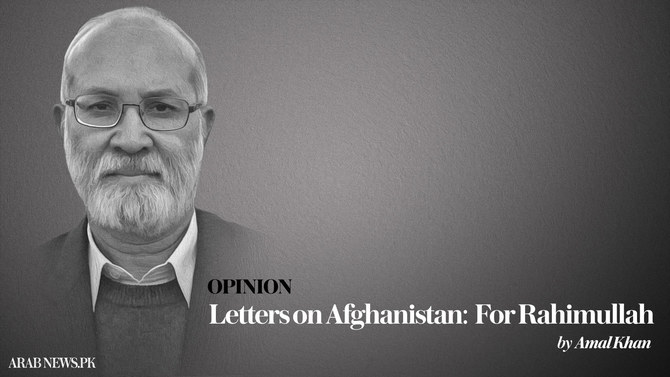As an Op-Ed editor, I know that people are deeply attached to the opinions they put down on paper. They’ve worked on every comma and capital letter. I’ve edited the words of ex-Presidents, ex-army chiefs, sitting ministers, diplomats, experts and journalists. I have fought hard battles just to edit the titles of pieces, to move a paragraph up or down, to cut out a line. All my writers are distinguished and knowledgable, and so all of them prefer their work published a certain way. All writers, maybe all people, have a natural vanity about their opinions.
All of them that is, except Rahimullah Yusufzai.
Rahimullah, who died on Thursday, was an award-winning Pakistani journalist, and spent his life reporting on Afghanistan. He was the stoic narrator of its long theatre of war, his credentials faultless and his word held in the highest esteem by people on all sides of that conflict. Famously, he interviewed both Mullah Omar and Osama Bin Laden, and the iconic 1998 photograph of bin Laden smiling inside a neon green tent was taken by his hand. It is not a stretch to say only a few other journalists are as high an authority on Afghanistan as Rahimullah was.
But side by side, Rahimullah was a reporter in the truest sense. He would call me up, because he wanted to ‘hear from his editor.’ He would send updates to his columns late into the night. He would pitch his pieces for me to assign.
“Is my topic fine, editor?” he would ask.
I’d laugh.
‘For Amal,’ was the title of his columns. As though he had written it only for me. A letter, not a column, on Afghanistan.
“Sir, you were in Kandahar reporting on these guys when I was in kindergarten,” I told him.
“But you are still the editor,” he said.
Rahimullah never questioned the edits, he never protested about the titles, the extracts, the tweets. He did his work, he wrote his reports and his columns, and then he passed on his 800 words to ‘the editor’ with ultimate faith. It was his faith not in me, but in the institution of journalism.
In January last year, Rahimullah lost his wife and didn’t write for three weeks. He sent me an apology and an explanation as straightforward as his reporting.
“It was Allah's will and we have no say in these matters,” he said.
Throughout his illness, he continued to write for us at Arab News. When Kabul fell to the Taliban last month, all of us naturally turned to him for his point of view. It could be nobody else. Who else but Rahimullah could write on the most important development in Afghanistan in two decades. Though seriously ill and very frail, when asked he said simply, “Yes, I will write.”
His last piece was published with us on Wednesday, only a day before he died.
Rahimullah always emailed his pieces untitled. Instead, the document was named after myself and my colleague, Iraj. Perhaps this was the result of decades of typing up quick copies for the wires.
‘For Amal,’ was the title of his columns. As though he had written it only for me. A letter, not a column, on Afghanistan.
Well, I now have three years worth of letters written by one of the greatest reporters of our time, addressed to me.
It has been the honor of my life to work with Rahimullah, and though there will be many Afghanistan columns falling into my inbox in the months and years to come, never again will one be as true or as humble-- or be written only for me.
Rest in peace, sir.
– The writer is an editor, Arab News Pakistan.
Tweets @amalkhan
















